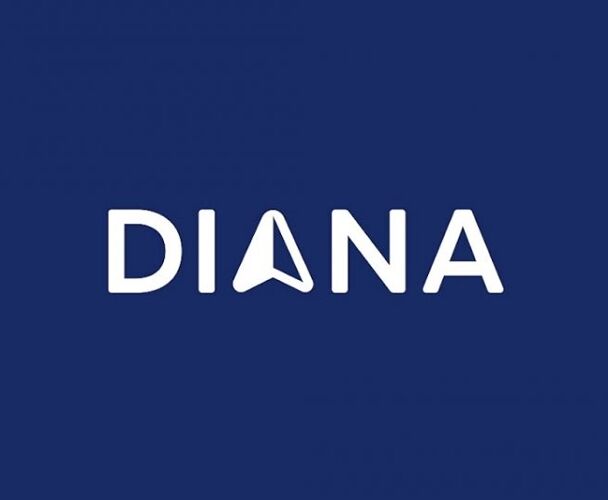This Frequently Asked Questions (FAQ) document provides a concise overview of the Latvian public procurement rules. It is designed to assist foreign candidates and bidders in navigating the complexities of the public procurement process in Latvia. By addressing common queries and concerns, this guide aims to promote understanding and compliance with the legal framework governing public procurement, ensuring a fair and competitive environment for all participants.
This guide is based on the laws valid as of January 1, 2025. It offers a general description of the issues it covers; however, each practical situation may have its own nuances that should be carefully evaluated on a case-by-case basis.
If you require a more detailed description of specific issues addressed in this document or need legal assistance with practical situations, please let us know, and we will be happy to assist you.
Q1: What are the mandatory grounds for excluding a candidate or tenderer from participating in Latvian public procurement?
Q2: Are there optional grounds for excluding candidates or tenderers?
Q3: Do exclusion grounds apply to affiliated parties?
Q4: What are the exceptions to exclusion?
Q5: Are there other reasons that can prevent a candidate or tenderer from participating in Latvian public procurement?
Q6: What information and documents are required from foreign candidates and tenderers?
Q7: What is the validity period for documents issued by foreign authorities?
Q8: What if the necessary documents are not available in the country of residence?
Q9: Can submitted documents be modified or supplemented after submission?
Q10: Can the European Single Procurement Document (ESPD) be used?
Q11: Can application or bid be submitted in languages other than Latvian?
Q12: Are Contracting Authorities allowed to require a bid bond (security)?
Q13: What are the requirements for a bid bond?
Q14: Under what circumstances must the bid bond be disbursed to the Contracting Authority?
Q15: Do applications and bids need to be submitted electronically, and what is the process?
Q16: What are the procedures for contesting procurement document requirements and results?
Q17: What are the deadlines for contesting procurement document requirements and results?
Q18: Is a deposit required to file an appeal with the Procurement Monitoring Bureau, and if so, how is it calculated and paid?
Q19: Can public procurement contracts be contested, and what is the procedure?
Contact us
Q1: What are the mandatory grounds for excluding a candidate or tenderer from participating in Latvian public procurement?
Candidates and tenderers are excluded for the following reasons:
- A final and non-appealable conviction for criminal offences related to participation in a criminal organisation, bribery, corruption, fraud, terrorism, money laundering, tax evasion or human trafficking. This also applies if a member of the management board or council, an authorized representative, a procurator or a branch representative has been convicted.
- Outstanding tax or social insurance liabilities.
- Registration in an offshore jurisdiction or more than 25% ownership by an entity in an offshore jurisdiction.
- Bankruptcy, insolvency, suspension of business activities, or liquidation.
- Involvement in cartel agreements or liability for fines resulting from such involvement, as determined by a final and non-appealable decision or ruling, unless the fine has been reduced due to cooperation.
- Employment of individuals without proper authorization or contracts, as determined by a final and non-appealable decision or ruling.
- Contracting Authority has evidence, such as a decision from a competent competition authority, of involvement in an anti-competitive agreement.
- Unilateral withdrawal by any Contracting Authority from a public procurement contract due to the candidate or tenderer’s default.
- Unlawful connections with individuals involved in preparing procurement documents, members of the procurement commission, experts, or commission secretaries, or situations where such individuals have a vested interest in the candidate or tenderer, with no less restrictive measures available.
- Anti-competitive advantages gained through prior involvement in preparing the procurement procedure that cannot be mitigated by less restrictive measures.
- Attempts to influence the Contracting Authority or its procurement commission, or efforts to gain confidential information during the procurement process.
- Failure to provide required information or submission of false information to demonstrate compliance.
Q2: Are there optional grounds for excluding candidates or tenderers?
Yes, there are two optional exclusion grounds that may be applied by the Contracting Authority if explicitly specified in the procurement documentation:
- Violations of environmental, social, or labour laws, as well as breaches of international conventions.
- Misconduct in previous professional activities that raises concerns about the candidate’s or tenderer’s integrity.
Q3: Do exclusion grounds apply to affiliated parties?
Yes, exclusion grounds also apply to:
- Members of partnerships or consortia.
- Individuals or entities whose capabilities the candidate or tenderer relies on to meet qualification requirements.
- Subcontractors for works or services valued at €10,000 or more.
- Persons having decisive influence in the candidate or tenderer (only the mandatory exclusion grounds 1, 2 and 3 apply) – this applies only to candidates and tenderers registered in Latvia.
- Ultimate beneficial owner (UBO) of the candidate or tenderer (only the mandatory exclusion grounds 1, 2 and 9 apply).
Q4: What are the exceptions to exclusion?
The following exceptions apply:
- The Contracting Authority determines that the candidate or tenderer has implemented sufficient self-cleaning measures to restore reliability.
- Three years have elapsed since:
- The final decision or ruling concerning mandatory exclusion grounds 1, 5 and 6.
- The decision of a competent authority related to mandatory exclusion ground 7 or the optional exclusion grounds.
- The unilateral withdrawal by any Contracting Authority related to mandatory exclusion ground 8.
- The procurement contract is essential to safeguarding public interests (e.g., health, security, or environmental protection) and is awarded through a negotiated procedure without prior publication due to extreme urgency caused by unforeseeable events.
- Negotiated procedure without prior publication is used to obtain goods or services under particularly favourable terms during bankruptcy, suspension of business activities, or liquidation.
Q5: Are there other reasons that can prevent a candidate or tenderer from participating in Latvian public procurement?
Yes, beyond the mandatory and optional exclusion grounds outlined in the Latvian Public Procurement Law, other factors can disqualify a candidate or tenderer from further participation:
- Failure to meet selection criteria, bid content requirements, or other mandatory requirements specified in the procurement documentation.
- Non-compliance with the requirements set out in laws and regulations necessary for performing the specific procurement contract, including national security concerns, particularly in cases where the contract involves critical infrastructure.
- International or national sanctions, or sanctions imposed by other EU or NATO member states, against the tenderer, its members (if the tenderer is a partnership), UBO, management board or council members, authorized representatives, procurators, or branch representatives, which could obstruct the contract’s performance.
- Situations where Article 5k of Council Regulation (EU) No 833/2014 of 31 July 2014, concerning restrictive measures in view of Russia’s actions destabilising the situation in Ukraine, prohibits the award of public procurement contracts.
Q6: What information and documents are required from foreign candidates and tenderers?
The required information and documents vary depending on the specific procurement and its qualification requirements. Candidates and tenderers must carefully review the procurement documentation and provide the information and documents requested by the Contracting Authority.
However, the following documents and information concerning exclusion grounds are mandated by law and are generally required for all public procurements:
- Criminal Record Certificates
Certificates for the candidate or tenderer and their company officials mentioned in mandatory exclusion ground 1, as well as for affiliated persons outlined in Q3 and their company officials.
- Tax and Social Security Compliance Certificates
Certificates from the relevant tax or social security authority certifying that the candidate or tenderer, and affiliated persons mentioned in Q3, have no outstanding tax or social security liabilities.
- Insolvency or Bankruptcy Status Certificates
Certificates from a competent authority certifying that the candidate or tenderer, and affiliated persons mentioned in Q3 (excluding persons having decisive influence and UBO), are not subject to insolvency or bankruptcy proceedings.
- Commercial Register Certificates
Certificates or excerpts from the Commercial Register for the candidate or tenderer and affiliated persons mentioned in Q3 (excluding UBO).
- UBO Documentation
A certificate or excerpt from the Commercial Register, or other document from a competent authority providing information about the UBO of the candidate or tenderer.
- Offshore Jurisdiction Declaration
A self-declaration confirming that the candidate or tenderer, as well as the affiliated persons mentioned in Q3 (excluding the UBO), are not registered in an offshore jurisdiction.
Q7: What is the validity period for documents issued by foreign authorities?
Documents issued by foreign authorities are considered valid if they are issued no earlier than six months before the submission date, unless the document explicitly specifies a shorter validity period.
Q8: What if the necessary documents are not available in the country of residence?
If the necessary documents are unobtainable or insufficient, they may be replaced by an oath, if permitted by the country’s legal framework, or by a self-declaration provided by the candidate or tenderer, their company officials, and affiliated parties to a competent executive or judicial authority or a sworn notary.
In practice, documents that cannot be obtained are typically replaced by a self-declaration signed before a sworn notary.
Additionally, Criminal Record Certificates for company officials may be substituted with a written explanation if, according to the legal provisions of the country of registration, individuals to whom mandatory exclusion ground 1 would apply cannot serve as company officials.
Q9: Can submitted documents be modified or supplemented after submission?
In general, documents and information submitted for procurement cannot be modified after the submission deadline.
However, if the Contracting Authority determines that the submitted information or documents are unclear or incomplete, it may request the candidate or tenderer to clarify, supplement, or provide missing documents.
Key restrictions:
- Additional documents and information can only supplement or clarify the information already submitted.
- Substantial changes to the submitted information or bid are not allowed
- The Contracting Authority must ensure that accepting additional documents or information does not violate the principle of equal treatment.
Q10: Can the European Single Procurement Document (ESPD) be used?
Yes, the Contracting Authorities must accept the ESPD as preliminary evidence in place of certificates and other documents issued by public authorities or third parties, confirming that the candidate or tenderer meets the selection criteria and that the exclusion grounds do not apply.
However, it is important to note that the Contracting Authority reserves the right to request the relevant certificates and other documents at any stage of the procurement process.
Q11: Can application or bid be submitted in languages other than Latvian?
In general, all documents and information must be submitted in Latvian. If the original documents are in other languages, a properly certified translation into Latvian must be provided.
However, the Contracting Authority may permit the submission of documents in other languages if explicitly allowed in the procurement documentation.
Q12: Are Contracting Authorities allowed to require a bid bond (security)?
Yes, Contracting Authorities are permitted to require a bid bond. This requirement must be explicitly stated in the procurement documentation, which must specify the form, amount, duration, and conditions for the submission and release of the bid bond.
Q13: What are the requirements for a bid bond?
The bid bond amount must be proportional to the estimated value and scope of the contract. In all cases, the bid bond amount cannot exceed 2% of the contract’s estimated value.
The duration of the bid bond must be reasonable and proportional, taking into account the complexity of the procurement and the estimated time required for bid evaluation. In all cases, the duration may not exceed six months from the bid opening date.
The bid bond can be submitted in one of the following forms:
- A bank guarantee,
- An insurance policy, or
- A monetary deposit into the Contracting Authority’s account, provided this option is explicitly allowed in the procurement documentation.
Q14: Under what circumstances must the bid bond be disbursed to the Contracting Authority?
The bid bond issuer must disburse the bond to the Contracting Authority in the following situations:
- The tenderer withdraws their bid while the bid bond is in effect;
- The successful tenderer fails to provide the performance bond required in the procurement documentation and the contract within the specified timeframe;
- The successful tenderer does not sign the contract within the specified timeframe.
Q15: Do applications and bids need to be submitted electronically, and what is the process?
Applications and bids must be submitted electronically through a free-of-charge electronic information system. The official government-maintained platform for this purpose is the Electronic Procurement System (Elektronisko iepirkumu sistēma or EIS), accessible at www.eis.gov.lv. The system comprises four sub-systems, with the e-tenders sub-system designated for viewing published tenders and submitting applications and bids.
To submit applications and bids through the e-tenders sub-system, suppliers must register in the Electronic Procurement System by completing and submitting registration documents to the State Digital Development Agency. Detailed information and guidelines for registration and document submission are available at http://paligs.eis.gov.lv/suppliers/
There are few exceptions where the Contracting Authority is not required to use the electronic system for the submission of applications and bids, such as in case of a negotiated procedure without prior publication.
Q16: What are the procedures for contesting procurement document requirements and results?
Suppliers whose rights have been infringed—or are at risk of infringement—due to a potential violation of EU or other applicable laws and regulations may contest the requirements of a specific procurement or its results with the Procurement Monitoring Bureau.
Decisions made by the Procurement Monitoring Bureau can be appealed to the Administrative Court. The ruling of the first-instance court may be further appealed to the Supreme Court, whose decision is final.
Appealing a decision of the Procurement Monitoring Bureau does not automatically suspend its effect. If the Bureau allows the Contracting Authority to conclude the contract and the contract is finalized, the court can only assess the legality of the decision without the possibility to annul the contract. To prevent this, the appellant must promptly request the court to apply interim measures – suspension of the Bureau’s decision.
Q17: What are the deadlines for contesting procurement document requirements and results?
Procurement document requirements can be contested within the following deadlines:
- No later than 7 days before the deadline for submission of bids in an open procedure.
- No later than 4 working days before the deadline for submission of applications or bids in a restricted procedure, competitive procedure with negotiations, competitive dialogue or innovation partnership.
Results can be contested within the following deadlines:
- Within 10 days after the day the decision on the results has been sent to the supplier electronically, with a secure electronic signature, or by fax or in person.
- Within 15 days from the day the decision on the results has been sent to the supplier via postal services.
- Within 10 days from the day the Contracting Authority publishes a voluntary publication on the results of a negotiated procedure without prior publication.
Q18: Is a deposit required to file an appeal with the Procurement Monitoring Bureau, and if so, how is it calculated and paid?
Yes, a deposit is required to file an appeal with the Procurement Monitoring Bureau.
Payment Methods:
The deposit can be submitted using one of the following methods:
- A payment to the Procurement Monitoring Bureau’s account.
- A bank guarantee.
- An insurance policy.
Calculation of the Deposit:
The deposit is 0,5% of the estimated value of the contract, with the following maximum amounts:
- €15 000 for public works contract.
- €840 for public supply and service contracts.
If the estimated value of the contract is not indicated in the procurement documentation or cannot be determined:
- €3400 for public works contracts.
- €840 for public supply and service contracts.
Exceptions:
No deposit is required for appeals concerning the legality of the termination of a procurement procedure or requirements in the procurement documentation.
Q19: Can public procurement contracts be contested, and what is the procedure?
Yes, public procurement contracts (or amendments) can be contested directly in the Administrative Court in the following situations:
- The Contracting Authority has awarded a procurement contract without following the proper procurement procedures required by law or has made unlawful amendments to an existing contract.
- The contract has been awarded without publishing a notice on the Procurement Monitoring Bureau’s website or in the Official Journal of the EU, when such publication is required.
- The contract was finalized during the standstill period or while an appeal is pending with the Procurement Monitoring Bureau.
Deadlines for contesting a contract:
- Within 6 months from the day the contract was finalized.
- Within 30 days from the day:
- A notice is published on the Procurement Monitoring Bureau’s website or in the Official Journal of the EU, where the Contracting Authority justifies awarding the contract without prior notice.
- The Contracting Authority notifies the relevant candidate or tenderer of the contract’s conclusion.
Possible outcomes of a successful appeal:
If the appeal is successful, the Court may rule to:
- Declare the contract null and void.
- Amend or declare specific conditions of the contract null and void, and reduce the term of the contract.
- Reduce the term of the contract.
The ruling of the first-instance court can be appealed to the Supreme Court, whose decision is final.
Contact us
 |
 |
|
Sandija Novicka
|
Artūrs Valderšteins
|





